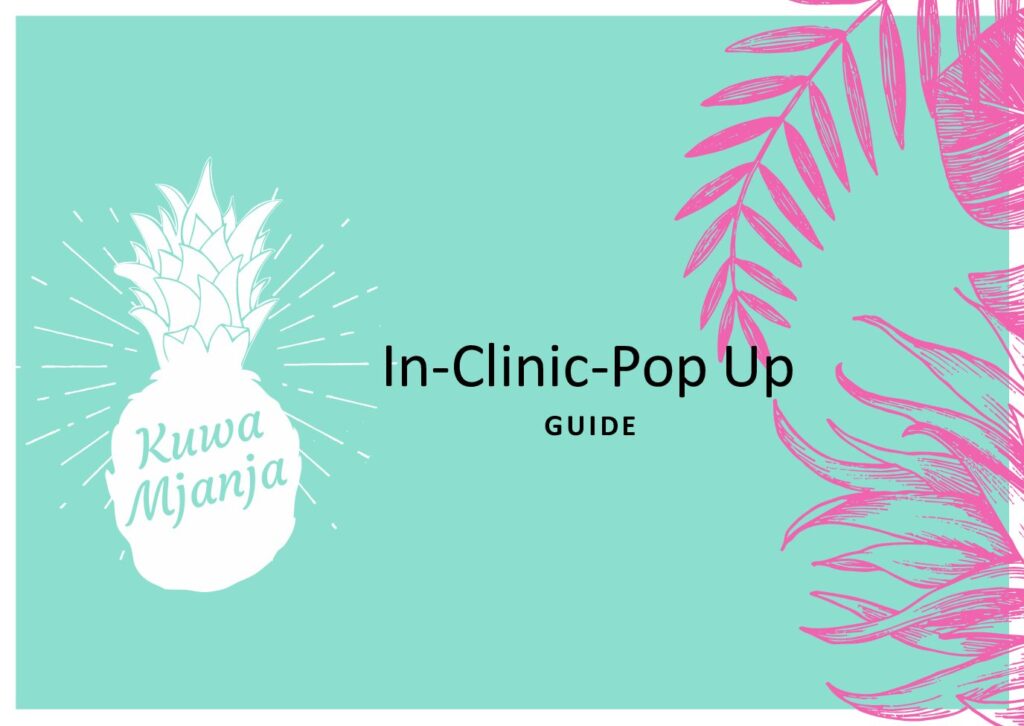Kuwa Mjanja Implementation Assets: In-Clinic Event Guide

During in-clinic events, Kuwa Mjanja outreach teams convene on the grounds of designated public health facilities and work in partnership with providers and local government to engage in interactive dialogue sessions, offer girls Kuwa Mjanja’s aspirational program messaging, and youth-friendly service delivery. In-clinic events support girls to build confidence and bodily autonomy, making linkages to […]
Breaking the Gossip Cycle: Adolescents 360 Helps Teens Find Safe Place To Talk Sex
The need to reimagine reproductive health care for teens in Tanzania is urgent. 45% of the population is under the age of 15 and 44% of girls become pregnant by age 19. PSI’s Adolescent 360 program meets teens where they are — outside of clinics — and with language and activities that make sense for them.
From Coding to Contraception: Athumani Helps A360 Team Get Stronger Impact
The need to reimagine reproductive health care for teens in Tanzania is urgent. 45% of the population is under the age of 15 and 44% of girls become pregnant by age 19. PSI’s Adolescent 360 program meets teens where they are — outside of clinics — and with language and activities that make sense for them.
There Are No Bad Ideas: Just Untested Ones
The need to reimagine reproductive health care for teens in Tanzania is urgent. 45% of the population is under the age of 15 and 44% of girls become pregnant by age 19. PSI’s Adolescent 360 program meets teens where they are — outside of clinics — and with language and activities that make sense for them.
This Got Nixed: Find Out Why
The need to reimagine reproductive health care for teens in Tanzania is urgent. 45% of the population is under the age of 15 and 44% of girls become pregnant by age 19. PSI’s Adolescent 360 program meets teens where they are — outside of clinics — and with language and activities that make sense for them.
Empathy In Action: A360 Asks Parents to Remember What It Was Like to Be a Teen
In Tanzania, parents typically don’t talk to their children about contraception or pregnancy prevention. That is why PSI, alongside a consortium of partners, has created Kuwa Mjanja, a program that focuses on preventing unplanned pregnancy among girls aged 15-19 by co-creating programs with the teens they serve.
Tanzanian Teens Want Straight Talk About Contraception
Through Adolescents 360, PSI uses Silicon Valley-style human-centered design tactics to co-create activities like these with the teens they serve. They found out early on that the term “family planning” doesn’t resonate with this generation.
Helping Girls Find Friendly Faces
PSI screeners like Amina have discovered 80% of the providers fall into the “negative” category. In a country where it is difficult for teenage girls to get accurate information about the changes in their bodies and how to prevent pregnancy, turning to parents for help is rarely an option. And it can be tough to muster up the courage to visit a health clinic if she thinks she’ll be judged for having sex. Once a girl has a negative experience, the chances she’ll take up a contraceptive method are slim.
